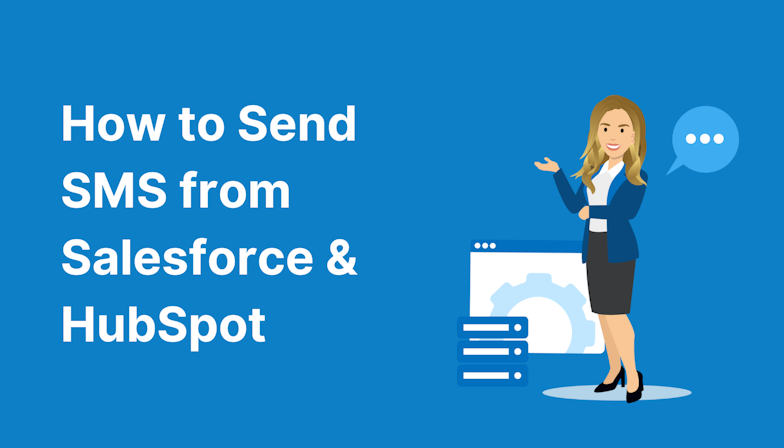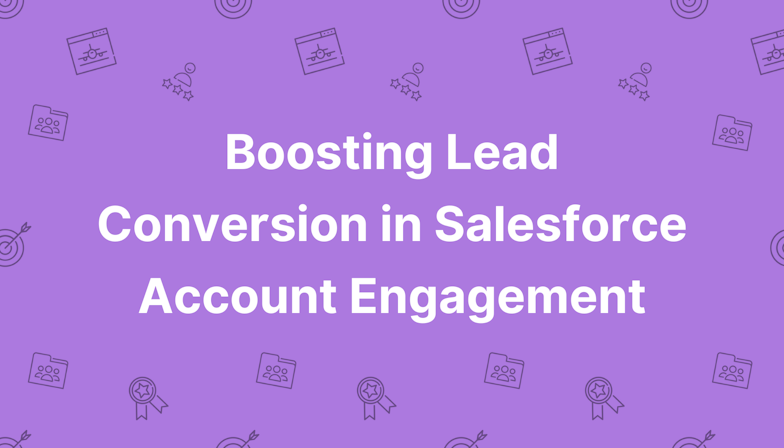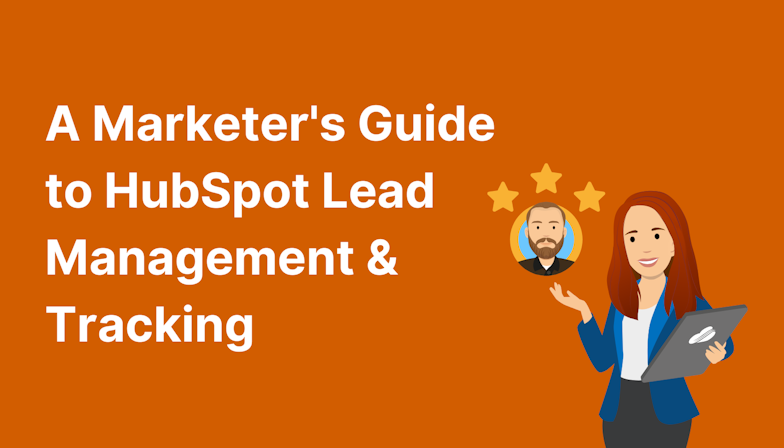When it comes to marketing automation tools, Adobe Marketing Cloud and Salesforce Marketing Cloud are two of the most popular platforms in the market. Both offer robust solutions for marketing campaign management, personalising content, and measuring ROI.
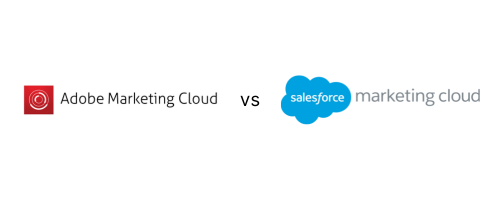
While we work with Salesforce products and are therefore biased towards these, we’ll give credit where it’s due and acknowledge that both Adobe and Salesforce Marketing Cloud are premium tools, but they work in very different ways.
Once a marketing automation platform is implemented, it’s really tricky to switch. So for marketers seeking the right solution for their business, it’s important to compare Adobe Marketing Cloud and Salesforce Marketing Cloud by reviewing their features, benefits, pricing models, ease of use, and integration capabilities.
In this article, we’ll do our best to be objective as we run through the differences between both platforms and ultimately, answer the question, which is right for you?
In a hurry? Skip ahead to the part that interests you most:
- Overview of capabilities
- Integration
- User experience
- Customer support
- Pricing
- Other comparisons
- Which is best?
Overview of capabilities
Adobe Marketing Cloud
The focus of Adobe Marketing Cloud is ‘cross-channel campaigns’. With the ability to execute across multiple channels such as email, mobile, web pages, and offline sources, its core functionality is focused on the digital experience via web content management, personalisation, optimisation via A/B testing landing pages, and so on. It’s modules include:
- Campaign
- Experience Manager
- Media Optimizer
- Primetime
- Social
- Audience Manager
- Target
- Analytics
Where Adobe Marketing Cloud performs well is in enabling centralised campaign messaging and management in a single place, and allowing marketers to roll out consistent personalised experiences.
However, user reviews on softwareadvice.com confirm that without good tutorials and documentation, being able to utilise the features available is difficult.
Salesforce Marketing Cloud
With a comprehensive suite of marketing studios and modules, Salesforce Marketing Cloud is a complete end-to-end solution for data management and segmentation that allows for segmented campaigns across email, mobile app, SMS, social media, and advertising. Its products include:
- Email Studio
- Journey Builder
- Audience Builder
- Personalisation
- Content Builder
- Analytics Builder
- Intelligence
- Customer Data Platform
- Account Engagement powered by Pardot
- Advertising
- Mobile Studio
- Datorama
- Marketing Cloud Connect
Not only are there a variety of modules to choose from, Salesforce Marketing Cloud excels at providing a high level of customisation, allowing marketers to tailor one-to-one campaigns and messaging to specific audiences and customer segments.
With a 1.51% market share in the Campaign Management category, compared to Adobe’s 0.23% market share in the same space, it’s a platform that is constantly evolving and delivering new releases and features for users. Most notable is its advanced AI functionality ‘Einstein’, something that is missing in Adobe Marketing Cloud.
Integration
Adobe Marketing Cloud
Designed as a stand-alone product, Adobe Marketing Cloud does integrate with a number of third-party systems such as Microsoft Dynamic CRM and Silverpop. It does not have extensive integration with the world’s #1 CRM: Salesforce Sales Cloud, so if your business uses Salesforce you’re already on the back foot if you choose Adobe Marketing Cloud.
When it comes to analytics, it’s worth noting that Adobe tools are intended to be used in tandem with Adobe Analytics, which is a paid and somewhat expensive analytics platform, rather than the free and popular Google Analytics software.
Salesforce Marketing Cloud
Logically, Salesforce Marketing Cloud is tightly integrated with Sales Cloud CRM, making the data flow and potential between the two products massive. This integration alone simplifies the management and tracking of marketing campaigns and customer interactions. So for businesses using Salesforce, it’s a no-brainer to stick within the Salesforce suite of tools and connect with Marketing Cloud as your chosen automation software.
Plus, Salesforce Marketing Cloud integrates with many other systems too, including Shopify and social media platforms such as LinkedIn and Twitter.
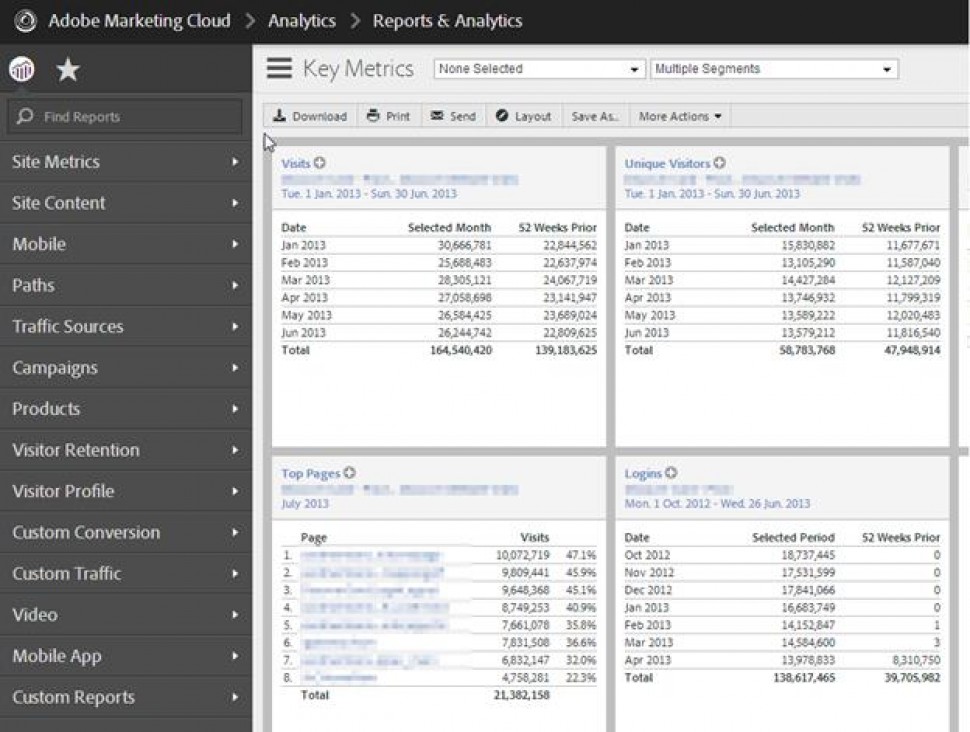
Source: Adobe
User experience
Adobe Marketing Cloud
Ironically, given the objective of Adobe Marketing Cloud is to deliver digital experiences that delight, the UX of the system itself is a little lacking. With a somewhat dated interface and clunky display, Adobe Marketing Cloud is all a bit… grey.

Source: softwareadvice.com
Salesforce Marketing Cloud
While some of the older features of Salesforce Marketing Cloud are still to have their design revamped, overall, the UX of this platform is good, with a simple navigation bar and particularly engaging display for one of the newest and most impressive tools: Journey Builder.
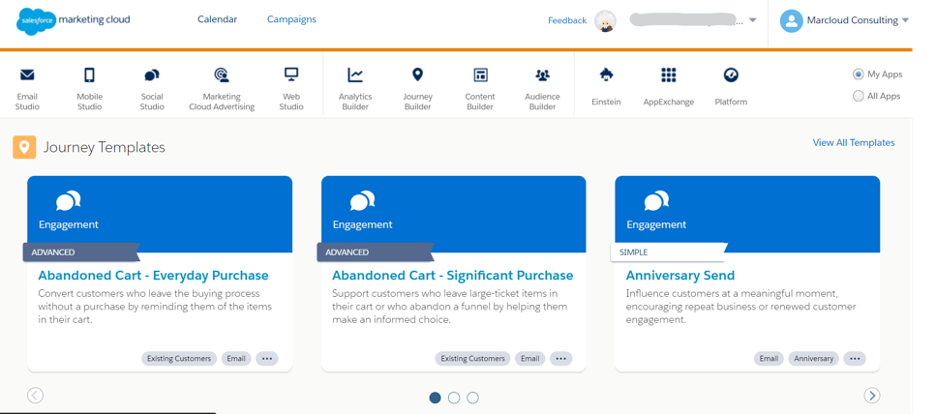
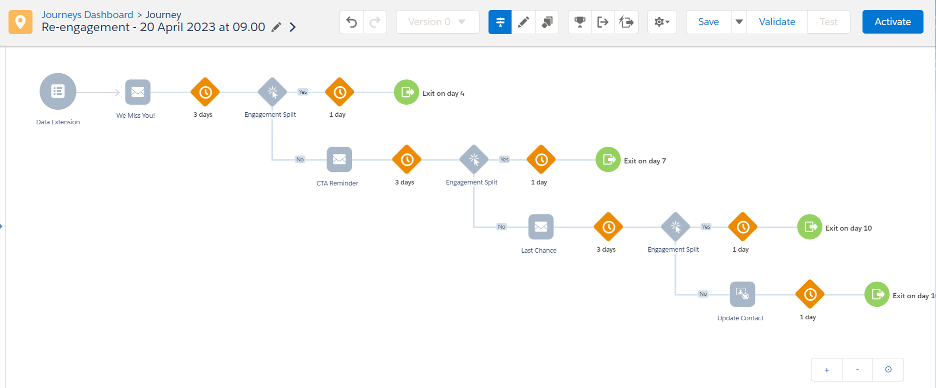
Much of the setup in Salesforce Marketing Cloud is drag-and-drop and while there’s a bit of a learning curve when it comes to things like managing data models, it’s easy to pick up thanks to the substantial documentation and support options that come with all Salesforce products.
Customer support
Adobe Marketing Cloud
Adobe Marketing Cloud has email support, a knowledge base, and 24/7 live chat support. However, With a modest user base in comparison to Salesforce Marketing Cloud, its online community support and forums are not as large and globally available as those for Salesforce users.
Salesforce Marketing Cloud
One channel Salesforce Marketing Cloud offers that its competitor does not, is phone support. The level of support varies depending on the pricing plan you opt for but ultimately, you can receive tailored and proactive support via any means that suits you. It’s also much easier to self-solve errors by accessing the Trailblazer community forums and training resources.
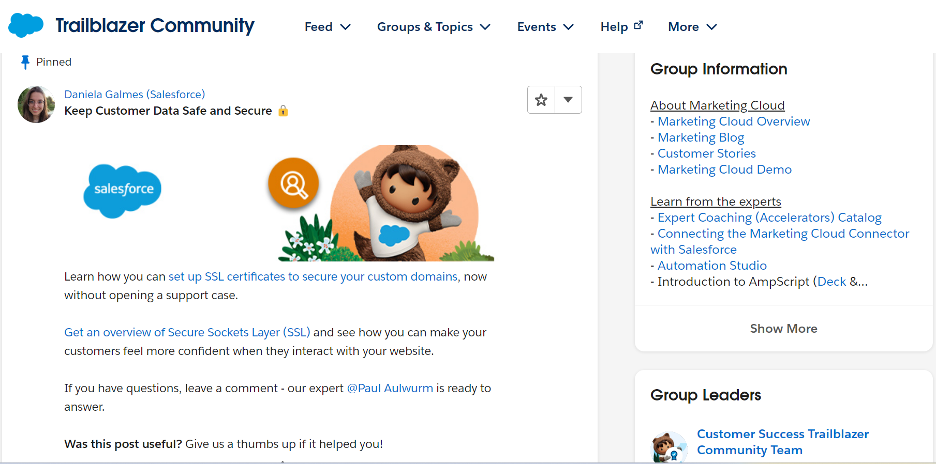
Pricing
Both Adobe Marketing Cloud and Salesforce Marketing Cloud price by quote, and the investment is dependent on the number and type of modules or ‘products’ a business wants. In both cases, this makes it easy to start small and scale up as needs grow.
Generally, Salesforce Marketing Cloud is rated at a higher price point than Adobe but given its more comprehensive, flexible features and out-of-the-box integration capabilities, this isn’t a surprise or necessarily a shortcoming.
Other comparisons to note
- Salesforce Marketing Cloud uses artificial intelligence to listen and provide insights about audiences and their behaviours. This is a hugely attractive feature that will only become more mainstream as the technology matures.
- Salesforce Marketing Cloud supports more languages than Adobe Marketing Cloud, including Swedish, Spanish, French, Italian, Dutch and Portuguese.
- Within Salesforce Marketing Cloud you’ll find specific products and features for B2B companies, with ‘Account Engagement powered by Pardot’ touting excellent lead scoring and grading tools, as well as advanced lead nurture workflows.
Which suits your business best?
The user base of Adobe Marketing Cloud tends to be more enterprise-size businesses operating across multiple channels, with a need to personalise experiences consistently across them all. They tend to have more complex marketing attribution needs that require the centralised collaboration and management abilities of Adobe Marketing Cloud.
Salesforce Marketing Cloud, on the other hand, is suited to small, medium and large businesses thanks to its pricing model, which can be fully tailored to suit your needs and budget. Used mostly by B2C companies but also suitable for B2B use cases (Account Engagement powered by Pardot, especially) it’s extensive suite of tools make marketing to customer segments possible across a variety of channels, working in alignment with the sales team via integration with Salesforce CRM.
In conclusion, both Adobe Marketing Cloud and Salesforce Marketing Cloud have their unique strengths and capabilities. While Adobe excels in personalised content creation and multimedia management, Salesforce offers a comprehensive suite of customer relationship management tools.
Ultimately, the choice between the two will depend on your specific business needs and goals. It's important to carefully evaluate each platform's features, pricing, and integrations before making a decision. Get in touch with our team if you’d like to discuss the merits of Salesforce Marketing Cloud further, or find out about our implementation packages.

Kumar Gurrampalli
Kumar’s working day involves end-to-end Salesforce Marketing Cloud Engagement implementations & API integrations. Typical tasks include requirement gathering, solution design, testing, implementation, and overseeing the development. He’s quality-focused and always gives best-in-class solutions to clients.
More by Kumar GurrampalliFeatured resource
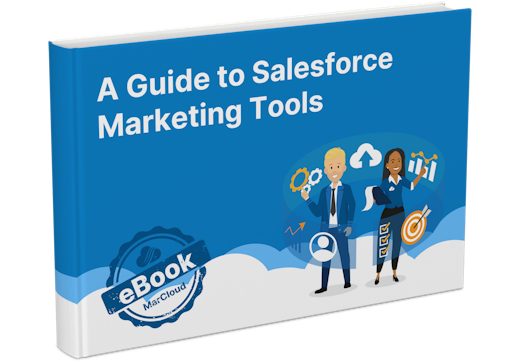
Salesforce Marketing Tools
With the eBook ‘A Guide to Salesforce Marketing Tools’ in your arsenal, you’ll have a go-to, comprehensive, expert guide to understanding and selecting your perfect Salesforce marketing platform(s), be it Marketing Cloud Account Engagement (Pardot) or Engagement, and the products available to each.
Download now